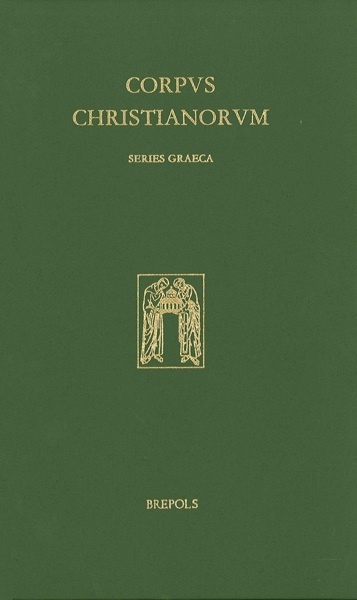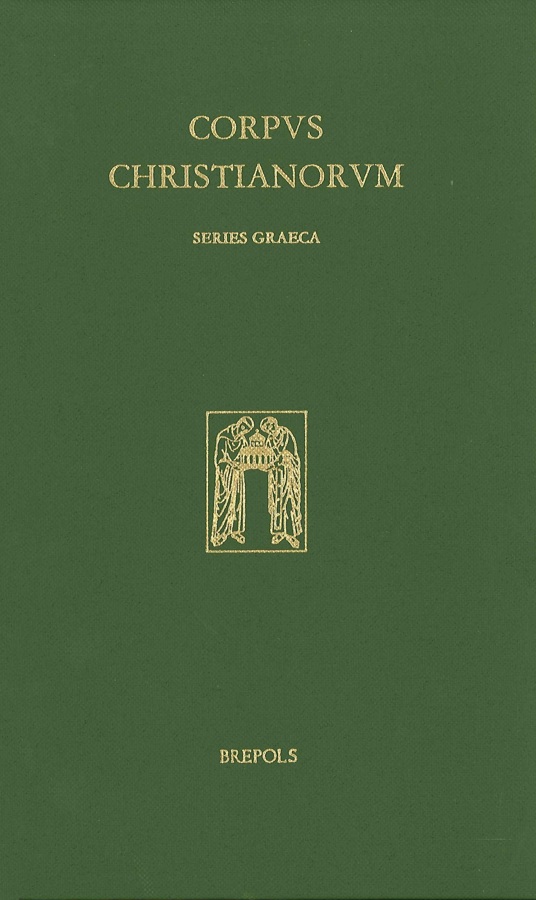
Nicetas Thessalonicensis
Dialogi sex de processione Spiritus Sancti
Alexandra Bucossi, Luigi D'Amelia (eds)
- Pages: cxiv + 285 p.
- Size:155 x 245 mm
- Language(s):Greek, Italian
- Publication Year:2021
- € 270,00 EXCL. VAT RETAIL PRICE
- ISBN: 978-2-503-58640-3
- Hardback
- Available
The most original and innovative Byzantine text on the Filioque discussion
"Il faut donc saluer à tous égards l'édition critique de cette source particulièrement importante pour l'étude des origines de la controverse théologique entre orthodoxes et catholiques." (Marie-Hélène Blanchet, dans Revue des études byzantines, 82, 2024, p. 352)
Alessandra Bucossi is associate professor of Byzantine Studies at Ca’ Foscari University of Venice. She is the editor of the editio princeps of the Sacrum armamentarium, Pars I, by Andronikos Kamateros published in Corpus Christianorum, Series Graeca 75 (2014) and the co-editor of a volume on textual criticism and editorial techniques (Ars Edendi Lecture Series, Vol. II, with Erika Kihlman, 2012). She also published on the reign of John II Komnenos (John II Komnenos, Emperor of Byzantium: In the shadow of father and son, with Alex Rodriguez Suarez, 2016), and on the division between Latin and Greek Churches ('Contra Latinos et Adversus Graecos': The Separation between Rome and Constantinople from the Ninth to the Fifteenth Century", with Anna Calia, 2020).
Luigi D’Amelia is a research fellow at Ca’ Foscari University of Venice within the "RAP (Repertorium Auctorum Polemicorum" project funded by Ca' Foscari University of Venice and Labex RESMED. He is the editor of the editio princeps of eight canons for the Holy Apostles by Joseph the Hymnographer (9th c.): Giuseppe l’Innografo, Nuovo Ottoeco: gli otto canoni per i santi Apostoli, Introduzione, testo critico, traduzione e commento , (Quaderni di Νέα Ῥώμη, 6; Series maior. Fonti e monumenti, 1), Roma, 2018.
The Dialogi sex de processione Spiritus Sancti by Niketas, metropolitan of Thessaloniki, once known unproperly as "of Maroneia", is one of the most outstanding polemical works against the Latins, written in form of a dialogue, of the Comnenian era. Niketas (first half of the 12th c.) is commonly considered a "latinophrone" theologian, since he was "prepared to accept the Latin wording" (A. Kazhdan, Change in Byzantine Culture in the Eleventh and Twelfth Centuries, Berkeley 1985, p. 189), and his Dialogi are the only Byzantine twelfth-century writings on the discussions with the Latin Church where Greek and Latin speakers reach an agreement on the procession of the Holy Spirit "through the Son", and where the Latin’s arguments turn out to be ultimately longer and more persuasive than the Greek’s mostly brief and provocative replies.
The critical edition of these influential six dialogues, edited for the first time in their complete form, offers one of the most original and innovative texts on the Filioque discussion and witnesses to the existence in the twelfth century of an uncommon way of interpreting the inter-Trinitarian relationship and to the usage of Aristotelic philosophy for interpreting the procession of the Holy Spirit.





